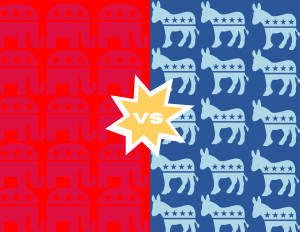Opinion: Overage, still restricted
October 28, 2015
Puerto Ricans have been American citizens since the Merchant Marine Act of 1920, also known as the Jones Act granted citizenship.
The first time I visited the Hub was to look at colleges when I was 22. I brought my license from Puerto Rico as my form of ID. I figured since it was passable for the Transportation Security Administration at the airport, it would be good enough to get into a bar.
I couldn’t have been more wrong.
During my two-week visit, I wasn’t allowed in multiple bars and denied alcohol in various restaurants, none of which even scanned my ID to see if it was legitimate.
Bartenders would often say that Puerto Rican licenses are not valid forms of U.S. ID because they couldn’t verify its legitimacy. However, Puerto Rican licenses are valid forms of identification because they meet all the requirements necessary of the Real ID Act of 2005.
Boston is filled with students from all over the world, and bars need to better prepare themselves to accommodate anyone of legal drinking age who have a valid form of ID. It seems international students have to wait a long time, considering these bars still haven’t invested in proper ID scanners to confirm the legitimacy of out-of-state licenses. The technology exists, so why aren’t we using it in Boston?
About a year ago, two of my Puerto Rican friends were visiting and they had the same problem. At the first bar, the bouncer consulted with the bartender, who decided that none of us could come in. I showed him my passport to confirm the legitimacy of my license, but he kept insisting the other two licenses were fake IDs so we had to go somewhere else.
Like New York City, people from different parts of the world call Boston home, and the Hub should strive to accommodate all its citizens like the Big Apple does. I went to New York for a weekend over the summer and I didn’t have a single problem ordering a beer with my license. All the bars had scanners, which clearly facilitated the process for the bouncers on a busy Saturday night.
I don’t have a choice but to bring my passport with me when I do go out to prove the legitimacy of my license. I hate having a document like that on me, but without it, my evening’s trajectory becomes much more complicated. It’s absurd that these bars and restaurants have not invested in proper scanners to help bouncers and bartenders determine if the ID is real.
Instead of walking around with my passport, I could buy the Massachusetts Liquor ID card, but I refuse to pay the $25 fee for it when I have yet to see one of my American friends need one in a bar.
From my personal experience, the biggest problem with this law is that it is applied disproportionately, forcing me as a Puerto Rican to have my passport on me when other out-of-state American citizens aren’t required.






